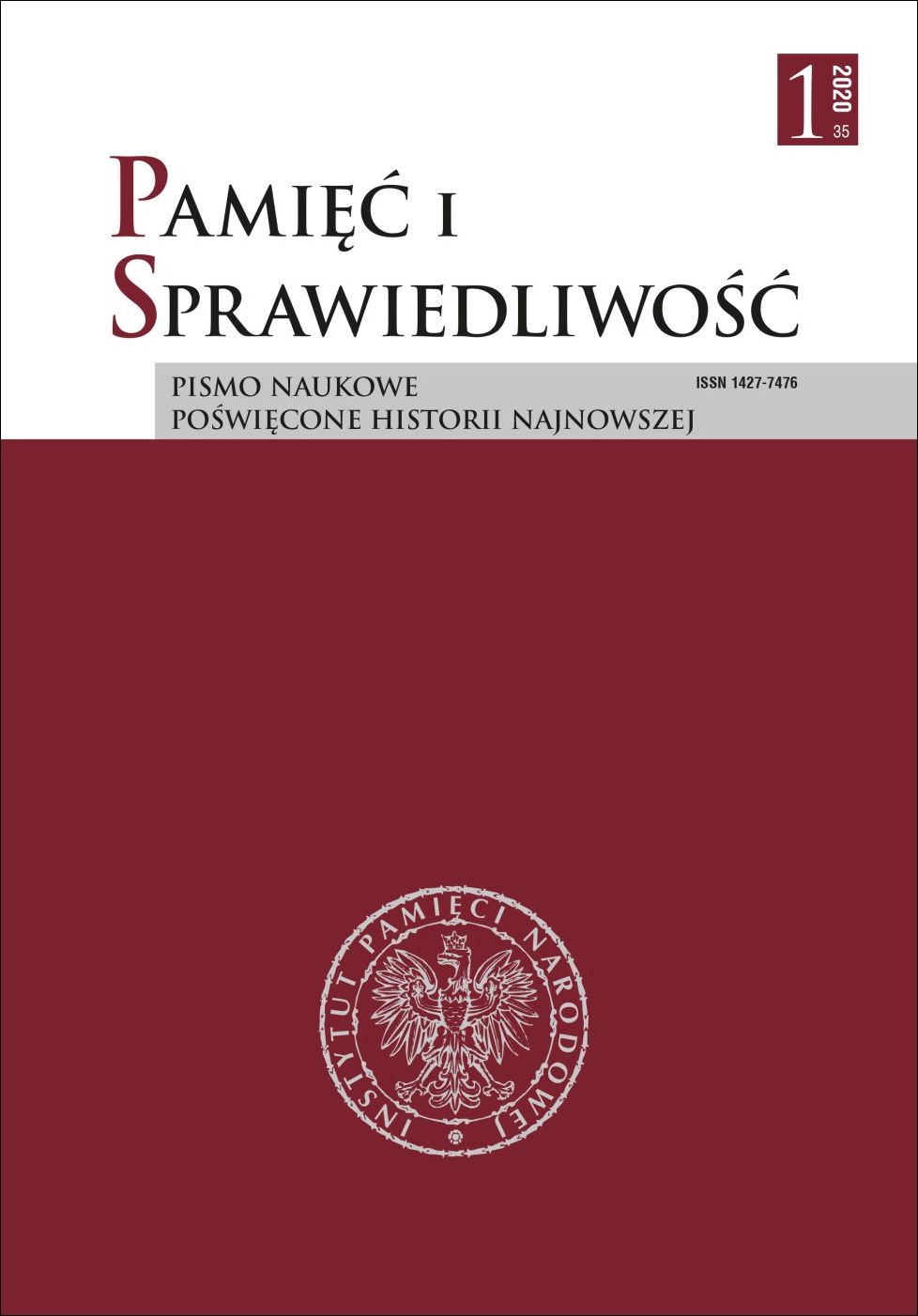Time Zone. The Transformation in Hungary in Light of Several Regional Relationships
Remembrance and Justice, Vol. 35 No. 1 (2020), pages: 70-81
Publication date: 2020-06-30
 https://doi.org/10.48261/pis203504
https://doi.org/10.48261/pis203504
Abstract
This article examines certain parallels in the political transformation in Hungary in the context of events in other Central and Eastern European countries. The starting point for the text is the outstanding role of culture, and particularly of writers, in the activities of the opposition in our region. Time Zone had a decisive influence on the course of political events. Most points in common are to be found in the developments in Hungary and Poland. The events of 1988 in both countries had a mutual impact on each other, like two gearwheels (as in 1956). The Round Table talks in Warsaw are an example of this, for they sent an important signal to the opposition in Hungary. This regional interaction led to a strengthening of relations within Central and Eastern Europe.
References
Bába I., A kommunizmus bukása (Rendszerváltoztatás Közép-Európában 1989–1990-ben) [Upadek komunizmu. Zmiana systemu w Europie Środkowej w latach 1989–1990], Szombathely 2017.
Bekes C., Negocjacyjna zmiana ustrojowa na Węgrzech [w:] Polska 1986–89. Koniec systemu, Warszawa 2002.
Boia L., Miért más Románia?, Kluż–Napoka 2014 [Dlaczego Rumunia jest inna?, tłum. J. Kornaś--Warwas, Kraków 2016].
Burakowski A., Gubrynowicz A., Ukielski P., 1989 – Jesień Narodów, Warszawa 1009.
Kiss C.G., Harminc év után: 1987 [Po trzydziestu latach: 1987], Budapest 2017.
Kiss C.G., Harminc év után: 1988–1989 [Po trzydziestu latach], Budapest 2019.
Szalai A., A múltból jelen, a jelenből jövő (Széljegyzetek a magyar nemzeti demokrata ellenzék lengyel kapcsolatairól) [Z przeszłości teraźniejszość, z teraźniejszości przyszłość (O stosunkach polskich węgierskiej opozycji nurtu narodowego w ostatnim trzydziestoleciu XX wieku)], Budapest 2017.
License

This work is licensed under a Creative Commons Attribution-NonCommercial-NoDerivatives 4.0 International License.
 Język Polski
Język Polski
 English
English
 Deutsch
Deutsch
 Français (France)
Français (France)
 Italiano
Italiano
 Русский
Русский



 PDF (Język Polski)
PDF (Język Polski)




